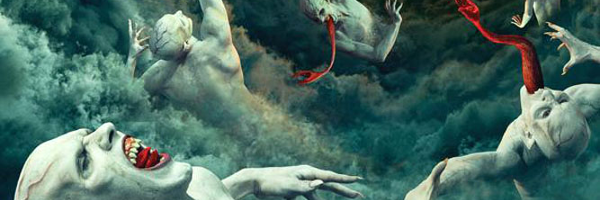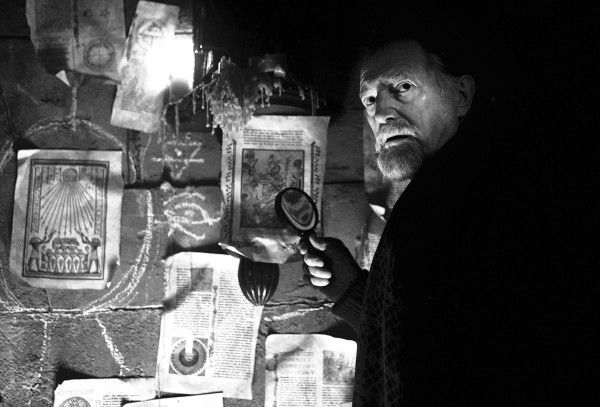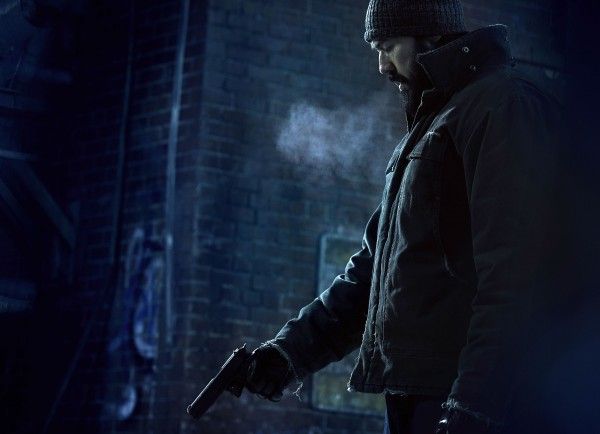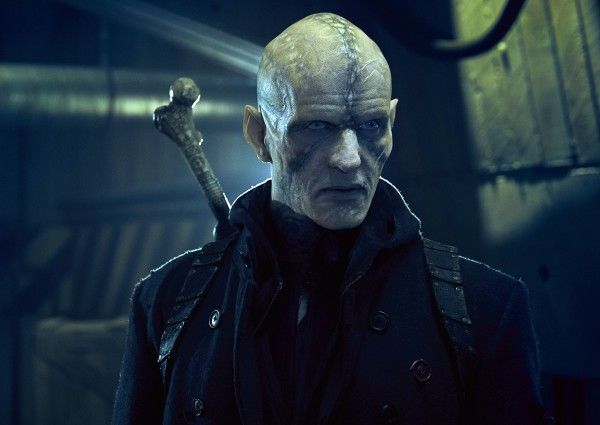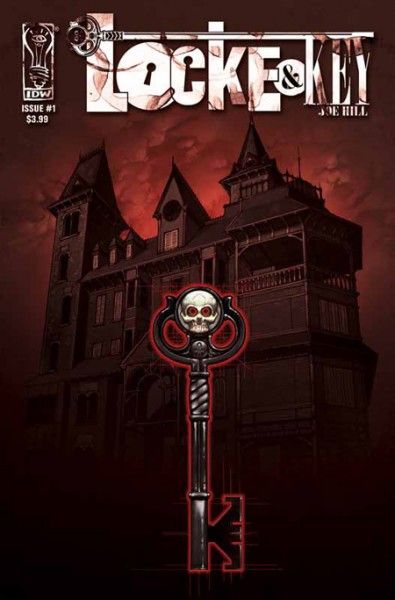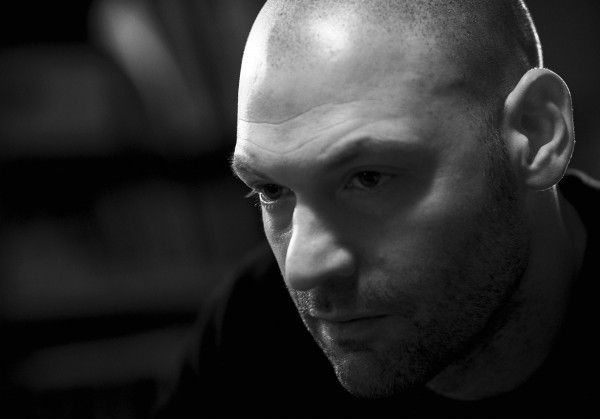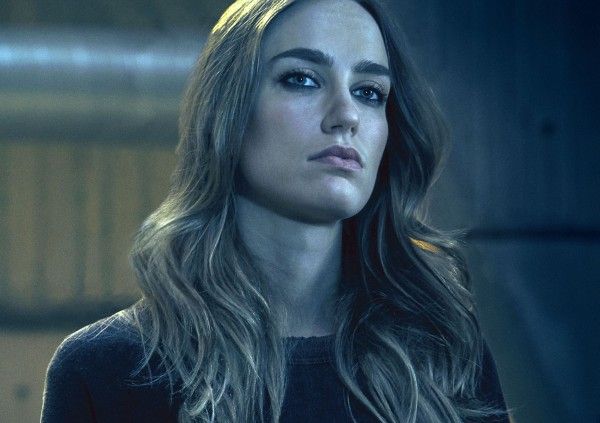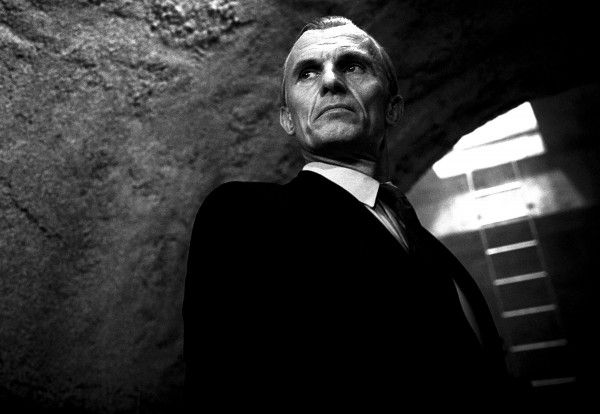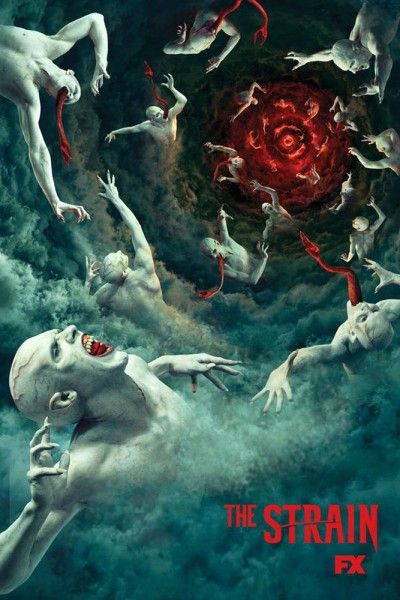In its fourth and final season, the FX series The Strain has seen nine months pass since a global nuclear apocalypse was set off, allowing the strigoi to gain control and the Master to establish a totalitarian regime. The majority of humans are not working for the strigoi as part of The Partnership, where they must collaborate or die, and the heroes that we’ve been rooting for have disbanded and will have to overcome personal hardship and stay alive long enough to possibly make it back to each other and save humankind.
During this 1-on-1 phone interview with Collider, showrunner Carlton Cuse (Lost, Bates Motel, Colony) talked about how the show was ready for a little bit of a re-invention, how they came to this conclusion for the story, the biggest challenge in having your main cast on separate journeys, whose journey will teach us the most about them, why the Master is feeling pretty good right now, and that humanity should never give up hope. He also talked about his next job as showrunner, on the Hulu series of Locke and Key that he’s currently developing with Joe Hill, and the main thing he learned from working on Lost.
Collider: It’s really cool how different the show feels this season, with everybody spread out in different places.
CARLTON CUSE: We thought it was really fun to both take a time jump and split our characters, and put them in these very different types of storylines and really change up the show. It was fun. The actors were very much like, “Wow, this feels really different this year!,” in a good way. It just felt like the show was ready for a little bit of a re-invention. The idea of putting our characters in nuclear winter seemed awesome. It was a lot of fun to write.
In the beginning, when you thought about how this show might end and how the story you’re telling might wrap up, did it look anything like this?
CUSE: The truth is – and I think it’s a necessary path when you’re adapting a book – you start with the book and story elements that you like, you start making episodes, and then the show takes on this organic quality of its own. Unlike a book, where you’re fully in control of all the creative elements and you are the one empirical god, creating and divining what happens in this world, in a television show, it’s a very collaborative endeavor. Me, in concert with Guillermo [del Toro] and Chuck Hogan, who wrote the books, all the writers on the show, and all the actors who act in the show, the show takes on a different life with the creative input of all those various people. One of the fun things, as a showrunner, is that you mine those veins of gold that you discover, along the way. As relationships unfolded and character dynamics were established, we followed those. People pitched ideas and, if we had additional ideas, we followed those. Ultimately, the two forms divert from each other, pretty dramatically. The book always existed to provide landmarks, but we always saw the television show as being very much its own thing with its own sense of direction. Originally, we had planned to do three years of the show, but then we found, as we got into it, that the second book felt like it could accommodate two seasons. So, the third season became the fourth season. It felt like it was just the right amount of time. Within the context of our world and our interpretation of the story, we started talking about what the right ending might be, and we felt like 10 more episodes was the right amount of time to tell that story. It’s really fun to do that. It’s really great to have the opportunity to bring the story to a conclusion, to show the audience the ultimate fate of these characters.
What are the biggest challenges in having your main cast on separate journeys this season, and also weaving in new characters and getting viewers to care about them, knowing that this is the last season?
CUSE: Well, the new characters are all in support of our existing characters, so that’s fair and doable. These new characters are a way to reflect dimensions of our existing characters to the audience. Having the characters separated just was cool. It gave us a chance to tell a bunch of different storylines. We hope our audience is fully invested in our characters and wants to see what happens to them, and ultimately hopes that they’re going to get back together. I think it would be unsatisfying, if they didn’t connect, in some form or another. That also created a good dynamic for the show. You’re sitting there wanting, waiting and hoping to see these characters reconnect.
So then, when you decided that everybody would be on these separate journeys, did you know, at the same time, how you would have them eventually cross paths?
CUSE: Oh, yeah. When we sit down, at the very beginning of the season, we start by discussing the entire architecture of the season and how all of the pieces go together. There was always a mosaic storytelling quality to The Strain. At the very beginning of the series, we were following a bunch of different characters and weren’t quite sure how they would intersect. In fact, characters like Gus and Eph have really never intersected, until they ultimately do this season. There’s a lot of fun in that.
Whose journey this season would you say will teach us the most about that character, or would maybe the most surprising?
CUSE: That’s a really good question. Wow, that’s a hard one! Personally, I love Fet’s journey this season. Right from the very get-go, he’s out hunting around in the northern Mid-West, trying to find a nuke. He’s taken up with this other woman, named Charlotte, and he has Dutch in his past. He’s got this incredible dilemma that he faces, in that he could hang out there with this woman and probably have as good a life as possible in nuclear winter, but he also has a sense of duty and obligation to finish this mission. His arc and what he chooses to do and how his story unfolds is really great. But I think the same is true for Eph, too. He’s really in a bad place. There’s not much worse that can happen to you, as a dad, than to have your son detonate a nuclear bomb. When you’re the father of one of the evilest child characters in the history of television, there’s not a lot of fun. His journey, and the ultimate fate of his character and his relationship with his son and how all of that is going to play out, is also really great. And Dutch is in this really creepy story. I don’t know. I love them all. I really feel like the stakes are big and the dynamics are really cool. It was a lot of fun to write. I think The Strain is meant to be this graphic novel popcorn thriller, and it’s a really fun ride this year.
At this point, is the Master pretty secure in feeling like he’s won?
CUSE: I think the Master is feeling pretty good right now, yeah. Obviously, he was in a very perilous situation until that nuclear device went off, at the end of Season 3. We think that humans are always meant to stay on the top of the food chain, but that turns out not to be the case. This little epidemiological crisis that started with Eph and Nora, as CDC agents, investigation a mystery on board an airplane has turned into a calamitous remaking of the world where humans are not atop the food chain any longer. Instead, this parasitic creature is. That’s a big deal.
This far into things, especially after what happened at the end of last season, it’s looking pretty hopeless for humanity. Should we still hold out hope that somehow the humans will pull through victoriously?
CUSE: Well, you’ve gotta always hold out hope. I think the show explores the fundamental nature of the human condition, and what’s good and what’s bad about being human. In some cases, the success of the Master has been due to the greed and self-interest of humanity. But I think there also are really wonderful qualities of humanity, like love and cooperation, that give our humans a fighting chance to still be in the battle.
You’re set to move on to showrunning Locke and Key for Hulu, which you’re working on with Joe Hill, and you have Scott Derrickson directing the pilot. I’m so very excited about that because I love that story and have been dying to see it brought to life. There’s been talk of doing it as a feature film and there was a previous pilot that was made, but until now, it just hasn’t happened. What did you see in the story that has given you a take on the material that will finally bring it to life?
CUSE: I think it’s a couple of things. One is that, like anybody artistically, you have a vision and your goal, as an artist and filmmaker, is to just try to fight through all the noise and traffic and issues to bring that vision to the screen. Like you, I absolutely love Joe Hill’s story. I have the distinct and decided benefit of working directly with Joe Hill. In the case of this adaptation, Joe wrote the pilot and I worked on a number of different drafts of the pilot with Joe, getting the script to a place where we felt like it was really rockin’. We took that out and were excited about it, and a lot of other people were, too. We were fortunate to have some choices. We went to Hulu and felt like they were the absolute right home for it. I think we’re going to have some exciting announcements about that show, coming up in the next few weeks. I think it’s gonna be really good. It’s really fun to work with someone like Joe Hill who has lived within this world for so many years. When you are creating a television show, you sketch and environment, and the more time you spend in it, the more you learn about the world and the more you develop the world. Collaborating with Joe Hill, this is a very fully developed world. He’s inhabited the world of Locke and Key for many, many years, and it’s really fun to pick his brain and realize that he’s answered a lot of questions about these characters and their interactions and the world in which they live.
What would you say is the main thing you learned from working on Lost, and if you could go back and change anything that you guys did on that show, what would it be?
CUSE: You know, I wouldn’t change anything, with the exception of the stock footage that confused people into thinking that the characters were all dead, which was not the case. In terms of the substantive answer to your question, absolutely not. We told the story that we wanted to tell. Even the stuff that wasn’t great was a necessary part of that journey. No one’s life is all up on the roller coaster. It’s ups and downs, and it goes here and there. The entirely of the journey was exactly what it should be. I think the thing I learned from that show is that you have to follow your heart and your gut. We did that, in telling the story. From the very beginning, we cast aside a lot of traditional conventions of television. The answer to that question could be really, really long, and unfortunately, we have other interviews to get to. It’s more of an essay than a quick answer. But I will say that the thing that made Lost exciting was that Damon [Lindelof] and I really cast aside a lot of the conventions of television and made the show that we wanted to make. We followed that same methodology for the entire six years of the show. We made the show that we wanted to make, that we wanted to see, and that we thought was cool. We never expected that it would become the phenomenon that it did. As a creator, you just have to follow your gut, your heart and your instincts. That’s the best you can do. Everything that happens around that is out of your control, but if you do that, you’ll end up, at the end of the journey, feeling good about yourself, about the process and about the experience, and fulfilled, as an artist, in delivering what it is that you set out to do.
The final season of The Strain will air on Sunday nights on FX, starting on July 16.

